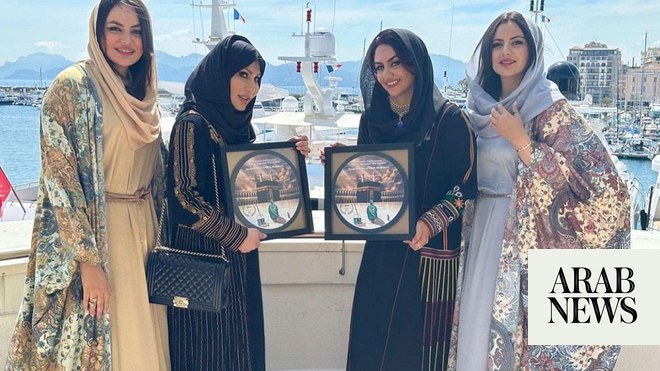
JEDDAH: A long-established Saudi jeweler is drawing on decades of experience in the trade to overcome drastic market challenges posed by the coronavirus disease (COVID-19) pandemic.
Salem Bakar Ahmad Salloum, 61, who sells prayer beads and gemstones from his shop in Jeddah’s historic Al-Balad district, said that more than 30 years in the business had taught him the importance of adapting to customer demands.
“There is no doubt that the COVID-19 crisis has affected the market in general and changed a lot of businesses, but we are still trying to preserve our regular clients as much as possible,” he added.
He pointed out that the economic repercussions of the global virus outbreak had created new challenges and opportunities in the market that would lead to a radical shift in consumer purchasing habits.
“Marketers need to respond quickly and understand the quality of these changes. Our clients who cannot leave their homes due to the situation communicate with me directly and send their orders and designs according to their desires and various standards, which are executed and delivered to their homes,” he said.
Salloum began his career working in shoe and gold retail stores but has been designing and selling jewelry for more than three decades, first making regular prayer beads, then adding gems to his designs before later moving on to produce silver rings.
Many of his clients have been regular visitors to his shop for years, trusting his work and commissioning customized designs.
“Gemstones are part of a global market. Before the COVID-19 pandemic, foreign tourists from all countries increased their demand for precious stones such as diamonds, rubies, emeralds, and navy sapphires, which is a favorite among the French, Italians, and Americans,” he added.
Salloum is fluent in English, Greek, and Italian, while speaking several other languages, and some of his clients — who have become good friends — often phone him to find out about the latest trends in the world of gemstones.
“People and tourists visit my shop because of its historical location. It is very old, which makes it part of the country’s history and has become famous and known to most shops in all markets and malls by my motto, ‘honesty and integrity,’” he said.
He pointed out that the pricing of gemstones depended on factors such as purity, color, and rarity. “There are special stones that are only available upon prior request from the client, which are diamonds, emeralds, rubies, and sapphires. They are considered expensive and premium gemstones because they are difficult to find.”
For example, emerald prices ranged from SR1,000 ($267) to SR15,000, with the best considered to be Colombian. “Diamonds are the most expensive and we provide them upon request.”
Semi-precious stones come second in terms of demand, importance, and price with agate the most common and turquoise, malachite, and tiger’s eye also popular.
“I travel myself and inspect the stones to make sure of their quality and whether they are original or fake. People’s interest and desire for precious stones, prayer beads, and rings have significantly increased nowadays,” Salloum said.
For some, he added, the acquisition of stones had become a part of their personality and they wore them most of the time.
“The most popular stones and categories of gemstones for the past 20 to 60 years have been Yemeni agate and turquoise,” he said.
He noted that fraud had become widespread in the stones’ market and that cheaper synthetic options had become common. “The buyer must seek the assistance of a stone expert to ensure the quality and authenticity of the stone.”
Salloum noted that people originally began using stones because of links to birth dates and beliefs that they brought goodness and happiness.











